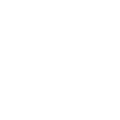
Which Agile certificate is right for me?
Should I get Scrum Master Certificate?
What is the difference of Scrum Alliance and SAFe certificates?
What is the difference of various Agile and Scrum certificates?
Below is a comparison of some of the most popular Agile certificates. This is by no means an exhaustive list of Agile certificates. Some of these certificates are more generic and some are for specific Agile methodologies or frameworks. Some of these certificates have various levels, from basic to advanced, but we are not looking at each individual level and we are looking at them as a bundle. Now let’s have a look.

Scrum Alliance:
Certified ScrumMaster (CSM)
Scrum Alliance CSM is the most well recognised Agile certificate internationally with hundreds of thousands of people worldwide being Certified ScrumMasters.
This certificate is all about Scrum. It is a great entry level certificate especially if you are new to Agile.
CSM is mainly about how to be a Scrum Master. It is focused on the team level. Scaling is mentioned in the course but the focus is certainly not on large enterprises.
There is an easy online test that you need to take after the course and upon passing you’ll become certified.
Certified Scrum Product Owner (CSPO)
Scrum Alliance CSPO is about the role of product owner in a Scrum team. This course is also highly Scrum focused. The course also covers valuable product ownership and product management techniques such as user story mapping, various prioritisation techniques (e.g. WSJF, Kano analysis, MoSCoW), etc. There is probably around 50% content overlap with CSM depending on your trainer.
Scrum Org
Professional Scrum Master (PSM)
This course is similar to CSM; highly Scrum focused. You can take the PSM exam without taking the course. But the exam is relatively hard and maybe a challenge passing if you don’t take the course.
It is typically the choice for people on budgetary constraints as attending the course is not a prerequisite for the certificate.
Professional Scrum Product Owner (PSPO)
Again, similar to CSPO but it is not required to attend the course and you can directly take the exam.
Similar to PSM, PSPO a good choice if you have budgetary constraints but the exam is relatively hard, so be prepared to study well before taking it.
SAFe
One of the key factors that must be taken into account for any SAFe training is the trainer. It is very easy to become a SAFe trainer. So there are a large number of SAFe trainers who provide very low quality service and don’t really know what they are talking about. You must absolutely know your trainer before booking in otherwise you’ll be very disappointed.
SAFe Scrum Master (SSM)
SAFe Scrum Master focuses on the role of Scrum Master (or Iteration Manager) in large enterprises. About half of the course is focused on the team level and the other half is about how to operate an Agile team within a larger enterprise comprising of multiple teams, and portfolios where hundreds of people have to work together to deliver a working product.
SAFe Product Owner/Product Manager (POPM)
The POPM course is mostly process focused. It focuses on how to be a Product Owner or Product Manager in the context of a SAFe enterprise. There is some content on product management techniques in general but it is not the main focus of this course. The course is mostly designed for people who are from the business side and are moving to a PO or PM role in an enterprise.
Leading SAFe (SAFe Agilist)
SAFe Agilist is my favourite course. It is highly focused on underlying lean and agile principles and values. The course is designed for leaders and managers in large enterprises. However, I think it is super valuable for anyone who works in an agile environment.
The main focus of the course is how to think Lean and Agile beyond just the processes and practices in large enterprises.
Now just to be clear this is a super difficult course to teach. So unless you are doing this course with a highly skilled trainer you will be pretty much wasting your time and will not get the benefits of the course.
Please click here for a list of our upcoming SAFe courses.
Certified LeSS Practitioner
Large Scale Scrum has a very strict assessment and selection criteria for trainers. As a result, most LeSS trainers are highly skilled and deliver exceptional courses. I did my LeSS practitioner with my friend Venkatesh Krishnamurthy, and would absolutely recommend his course.
LeSS has a purist approach to transformation. It encourages doing whatever it takes to maximize the agility of the organisation.
ICAgile certificates
ICAgile provides various certificates. ICAgile certificates are generally good, but typically it is relatively easy to become an ICAgile trainer. Again, I recommend to know your trainers before booking in. The current president of ICAgile Ahmed Sidky is one of my Agile heroes. He is absolutely fantastic in cutting all the fluff and focusing on what Agile really stands for. He takes the complexity out and focuses on the fundamentals.
Prince2 Agile
This one is not really an Agile certificate. Prince 2 is a traditional project management methodology (like PMBOK). My personal opinion is Prince2 Agile is a misnomer.
It is a great certificate if you want to learn project management, but not Agile.
PMI-ACP
This certificate from the Project Management Institute focuses on Agile Project Management. Unlike most other certificates PMI requires real world experience and does not purely rely on classroom training and exam. Again similar to Prince2 Agile, PMI-ACP has a lot of focus on traditional project management.
If you’d like to learn more about the role of Agile project management please read my blog here.
Should I bother getting a certificate?
Having Certificates does not necessarily mean you are an expert. We spend 2 days in a course and take the exam and then in a few months, we will lose all that knowledge if we don’t practice them. But unfortunately, in today’s job market certificates are considered a type of endorsement via accreditation. In many situations, having certificates is the prerequisite for even being considered for roles in the market.
In my opinion, the most important thing to consider is your trainer. A great trainer could inspire you for life. Even a 2 day session with a great trainer could change your life and plunge your career forward in a completely different way.
This happened to me when I attended the Heart of Agile course by Alistair Cockburn. Alistair’s course was such an inspiration to me. I always thought I know Agile and Scrum, but when I attended Alistair’s course I realised I know nothing. That course sparked a chain reaction that led to a super accelerated career growth ending up where I am today in just 3 years.
My mission now is to do what Alistair did to me. To inspire my students. To light that spark which will lead to their chain reaction. This is what drives me.
The quality of the courses that I deliver is of the utmost importance to me. When I go to the class in the morning my goal is to inspire people to a degree that will change their life.
I care about my students. As a result, we build strong bonds. I remember most of my students and we stay in touch. They also build strong bonds together. Relationships that last long.
So my ultimate recommendation is, don’t chose a certificate, choose a trainer.

What are the best certificates for the role I’m applying for?
Below is my recommendation for certificates that would help with the following positions.
Scrum Master:
(CSM or PSM) plus SSM
Product owner:
(CSPO or PSPO) plus (SAFe Agilist or POPM)
Agile Coach:
All of them, as many as you can. You are a coach, this is your craft you need to know Agile better than everyone in the world.
There are all sorts of advanced certificates like certified scrum professional, Certified Team Coach, SAFe Program Consultant, and other coaching level certificates. But I believe coaches need to already have all the entry-level certificates before moving to the advanced ones.
Agile Project manager:
PMI-ACP plus SAFe Agilist
Leaders and Managers:
SAFe Agilist plus Certified LeSS Practitioner
Hope this article was helpful. Thanks for reading.



Comments are closed, but trackbacks and pingbacks are open.